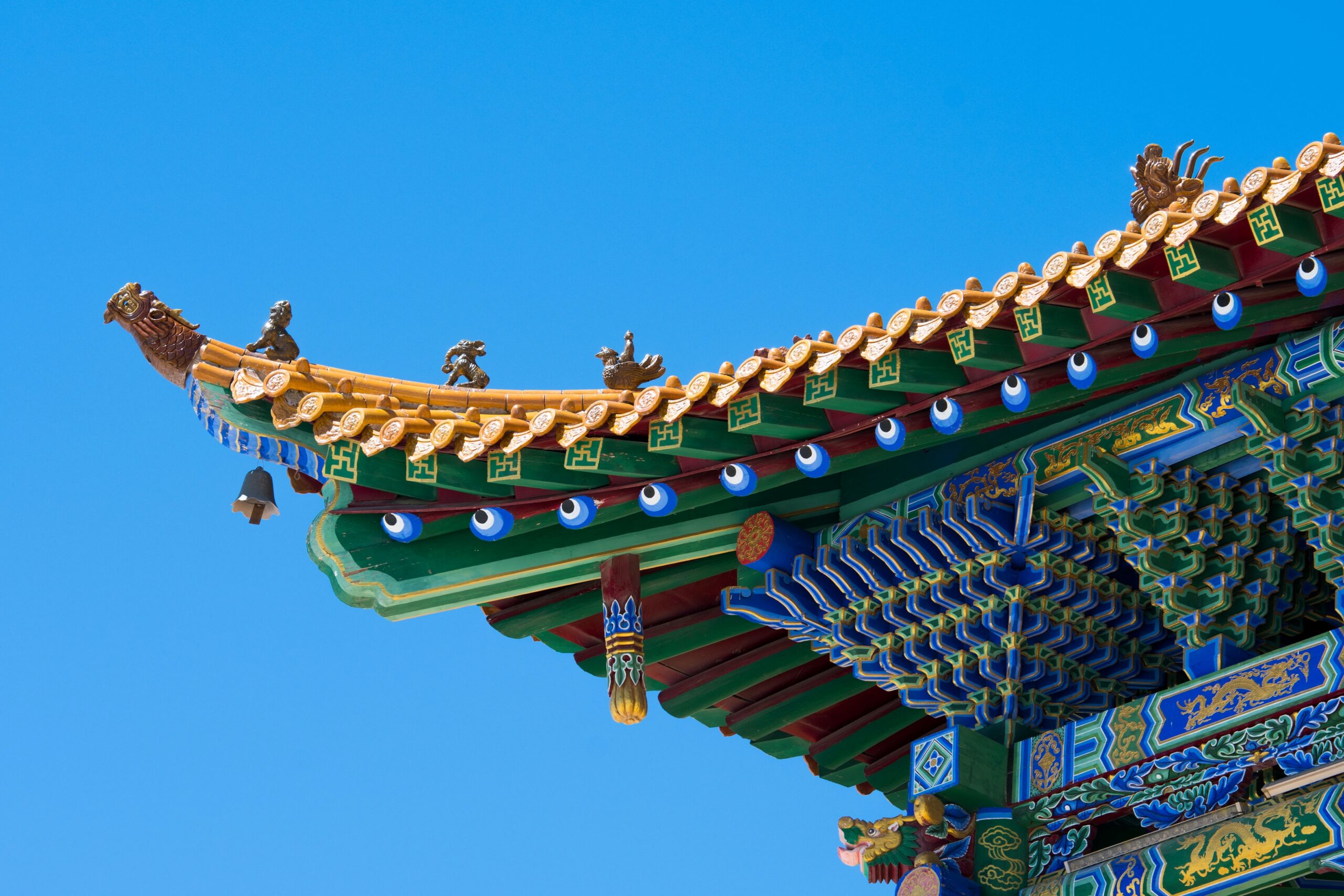Chinese New Year: interview with a local
The Chinese New Year is going to end soon, taking all its celebrations away, while everything is slowly returning to “normal”. Read our interview with Fen Mei Hu, Chinese cultural mediator. Mei lived in Italy for many years and recently, right before the pandemic, returned to China. In the interview, she told us about this important holiday and some of the traditions associated with it.

Is Chinese New Year celebrated in the same way around the country?
 New Year’s Eve is a reunion of the family (a bit like Christmas). Regarding the traditions, they not only change from region to region in China but also between ethnicities. Indeed in China, there are 56 minorities with different customs and traditions.
New Year’s Eve is a reunion of the family (a bit like Christmas). Regarding the traditions, they not only change from region to region in China but also between ethnicities. Indeed in China, there are 56 minorities with different customs and traditions.
What are some common traditions?

( 大年初一不能洗澡是传统习惯): It is a traditional custom not to take a bath on the first day of the new year.
It’s a tradition to clean the house before the eve of New Year, which is also known as “spring cleaning”, to hang red decorations at the door, lanterns and bright decorations. On the door also usually people write good wishes phrases, the most famous character is Fu 福 which means luck-abundance. There is also the tradition to take or not a shower, but not everyone follows it. It is just for people who still believe in its origin and meaning, for example, elderly people believe in the “ rain or water god”. For this reason, they dedicate only the first day to honor this god, does not bring good luck, because wasting water by taking a shower or washing clothes or floor, and not taking out the trash (you do this the days before), means that you are washing away all your luck, so its seem like a waste of water. The origin of this belief is that Spring is the farmers’ holiday and at the time water was extremely precious so that the water god could use water to irrigate the fields and let the farmers start the first sowing.
立春 linchun, means the beginning of spring and corresponds to the 21st of March the spring solstice in the rest of the world.
For example, this is custom of the South: in Guangdong, this specific day is the 15th of the first lunar month (probably because it is warmer there, and it rains later). For them, they say that it is better not to wash their hair, so as not to wash away luck.
As I said, all these traditions are only for those who believe. Young people, for example, are not so careful (unless there is a grandmother that says to do so (a little bit like today in Italy the young people do for Christmas). On the same day (New Year’s Day. 立春) children are told not to behave badly, not to say bad words such as: lose, die, beat, poverty or debts. On that day, you should not ask anyone to lend (otherwise you “go into debt all year round!” and the year starts badly). It is a day where you try to avoid offensive words.
However, on the first day, it is mandatory to dress in a new dress. parents give away new clothes, in addition to the red envelope.
Ah the Red Envelope! Tells us about that! Why do people give the red envelope and to whom, how does it work?

It is customary for the elderly to give The Red Envelope to young people.
Usually, a scheme is followed: parents give it to children, grandparents to grandchildren, bosses to employees, the manager to the subordinates. It is Confucianism.
A manager who occupies a higher position than you gives you the Red Envelope. The opposite must not happen!
For example, your boss has the obligation to give you the Red Envelope, but you can’t give it to him (unless you are friends, and you give it as a friend, but even there you have to see how the relationship is). But it never happens. If you really want to reciprocate the “kindness”, you can give the red envelope to his/her children, for example. Then he accepts it and thanks on behalf of them. Otherwise, it is an offense that no dependent dares to make. Another occasion could be, organizing a great dinner. And you are the organizer and “master” of the evening. In this case, you can give red envelopes to all participants.

How much money do you have to put in the red envelope? Better to avoid the number 4?

4 is to be avoided while 8 is a lucky number, regardless of the New Year.
How much? First, it always depends on the finances of the donor. Generally, it is preferred to give a round number like 50 – 100 – 200+ (the round number means the “full”).
For example, my former boss, when I used to work in a company which had more than 2000 employees, he used to put 50 for everyone (which for the individual is little, but the boss did 50 for 2000 people! So he went to the bank on purpose to withdraw only pieces of 50). To those who are closest to him, for example, high-level managers there was always another extra envelope, sometimes donated on a second occasion. And, at the end of the year, lunch for everyone (before the holidays, all companies organize a dinner for everyone, and everyone expects to receive the Red Envelope). But you, as an employee, do not have to reciprocate the Red Envelope. It is only in one direction: top-down, from the oldest to the youngest.
And what about children or relatives?

The red envelope for children. – 压岁钱 or Yasui Qian, is linked to a legend in which it is said that to protect your children from a demon that takes away children, you have to give this money so that the little one can live the coming year without fear or risk, and send away the “bad spirit”.
It is a symbolic wish, that this year can “pass” without too many hitches.
If you want to give money to children, never put more than what their own parents could give to them, otherwise, you risk making a bad impression. If you know that your cousin usually puts 20 in the Red Envelope for her child, you try to give more or less the same. Unless you are infinitely richer than your cousin and therefore “unleash” your luck. Even if they never refuse the gift, however, you must know that you create a sense of “inferiority” in your relatives.
But if you are the richest relative, and everyone knows it, well – of course – you have to give something more.
Nowadays with WeChat, the Red Envelope can be sent virtually, but only if you can not physically see your family or relatives, only if you cannot go home for New Year’s Eve. In this case, you ship it, but even there, the parent usually instructs the older person in the house to prepare the Envelope to donate it on your behalf.
Do you go to temples or visit sacred places?

It depends if you believe and what you believe.
For some it is a duty to go to the temples to thank the gods and ask for good luck for the new year. The seventh day 人日 , The creation of man by Nuwa (this is also a story similar to Adam’s divine creation in the Bible). It is recognized that, after the creation of animals, the seventh day the human being was created and everyone is unique. On this day you eat handmade spaghetti. And we must not break them, since they represent life, or its length.
What is the origin of the monster Nian?

It should be specified that it is called “Nian” (Guo nian, it should only be understood as “close the year” or end the year) the character 过 guo, also has the meaning of “overcome”.
It is the legend of a monster that comes out on the last day of the year, which brings fear and misfortune, and, to drive it away, people use bright colors, such as red and loud noise like fireworks.
What are the traditions about the food?

They can change from region to region, with their specialties, but generally, it is fish, stuffed rice cakes and the dumplings (in my region goes more the Nian Gao).
The fish is a symbol of wealth, dumplings are a symbol of family unity, rice dumplings, the “full and round” sense of life, of things, reconciliation or reunification of the family, like the circle of life. In fact, the Chinese table is generally round.
What is the origin of the word “cincin” used in Italy, in your opinion?

The word cin-cin, for the Chinese has the sound of “kisses-kisses” 亲亲 qin qin, and it makes a Chinese smile when saying it. But there may be a version of the word 请 qing, “please”. To say “please accommodate a guest”
How long are New Year holidays for Chinese people?

For youngsters, the Chinese New Year holidays last a month. For workers, two weeks.
Although from the national calendar it would be 7 days (for state employees, or those indispensable services it lasts only a week), and entrepreneurs take just those 2-3 days, and then throw themselves back into work. After all, they work for themselves!
Thank you Mei for your answer and time. We hope you had a great time, we still wish you a Happy New Year and that the year of the Tiger will bring a lot of fortune and happiness to you and all the people around the world. 谢谢你!


